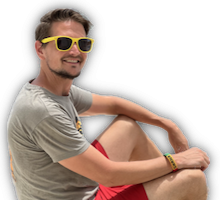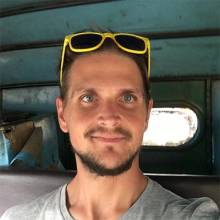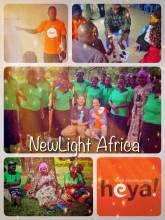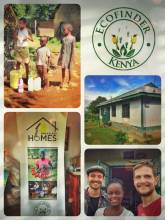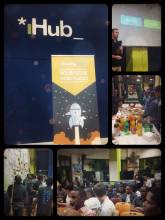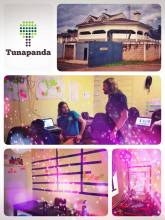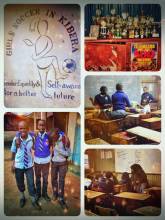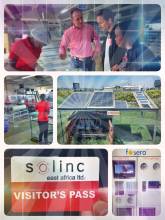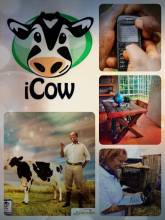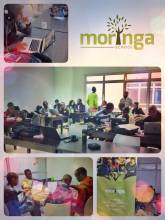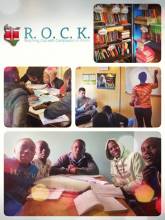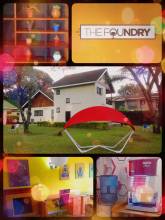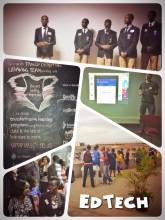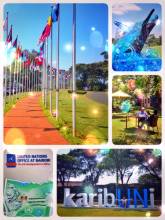Silicon Savannah
Introduction: from startups to social enterprises
Bootcamps: training for real life, not for the paper
The first thing that stroke me, were the many places to learn new skills. Countless organisations promise to educate and empower people. Most of these projects were initiated by westerners, who wants to share their privilege with others. Some projects select unexperienced teenagers from the Kibera slum to train and mentor. Others provide a more specialised education for competing candidates. A third group is just teaching basic life skills and building up self-esteem. Every single organisation I visited, impressed me by their engagement. All of them contribute to a successful and happy society of tomorrow.
Incubators: getting together and getting inspired
As in San Francisco, there are many startup hubs and co-working spaces. These are locations that promote exceptional innovation and creativity. Besides providing an everyday workplace, they also organise networking events to connect likeminded people. Due to my heavy travel activities, I only visited a few of those places and events. Nevertheless, I met some great minds with truly inspiring ideas and projects.
Startup Life: trying new ideas and going new ways
Being a startup, you often have to try and prove your concept. It is very refreshing to see, how much more courageous entrepreneurs in Africa are in comparison to Europe
are in comparison to Europe . On one hand, they often just have to go all in because they do not have another chance. On the other side, the investment costs are lower and people do not care so much about failure. Whereas in Europe, a failed entrepreneur is ridiculed and despised. Here, people are not held accountable, move on and try the next thing. Out of a necessity, innovation is faster and more experimental.
. On one hand, they often just have to go all in because they do not have another chance. On the other side, the investment costs are lower and people do not care so much about failure. Whereas in Europe, a failed entrepreneur is ridiculed and despised. Here, people are not held accountable, move on and try the next thing. Out of a necessity, innovation is faster and more experimental.
Entrepreneurs: everybody has a (side) business
Hustling and bargaining are deeply rooted in the Kenyan culture. The growing consumerism makes life more expensive and often requires an additional income. For some time, I was living with a Kenyan couple. Both having a good job, but also subleasing a room and renting an extra car to an uber driver. Every small job is performed by an entrepreneur: buying and selling (westerner’s) second-hand cloths on the street, cleaning shoes, driving a Boda Boda (moped) – even the Matatu (bus) driver and conductor are entrepreneurs!
Clean Energy: using the sun to enlighten the homes
Getting back to the industry, that brought me to Kenya in the first place. Solar, wind and water power are on the advance. From the smallest solar study-lamp to industrial sized solar parks, I have encountered a variety of projects. My concern, however, was the production and distribution of pay-as-you-go solar lanterns and home systems for the rural population. With great interest and in awe, I followed all the steps from the assembly line to the point of sales at rural markets. My engagement was a small contribution to enlighten millions of low-income homes.
in the first place. Solar, wind and water power are on the advance. From the smallest solar study-lamp to industrial sized solar parks, I have encountered a variety of projects. My concern, however, was the production and distribution of pay-as-you-go solar lanterns and home systems for the rural population. With great interest and in awe, I followed all the steps from the assembly line to the point of sales at rural markets. My engagement was a small contribution to enlighten millions of low-income homes.
Social Impact: helping others while enjoying the ride
Many westerners were coming to Africa to do something good for the people. As the history has shown quite impressively, not every method is really helpful. I have witnessed a very positive shift from large-scale investments to more personal engagements. Even local people have become more aware and interested in the wellbeing of their fellow citizens. A dear Kenyan friend is mentoring a bunch of girls in her spare time. The world is slowly enjoying the path to a bright future.
Summary: still trying to find the best approach
With Angaza and iCow, I was able to support two extraordinary projects. After living in Kenya and spending so much time in the field, I am convinced of any engagement that empowers the people and reduces dependencies. The entrepreneurial approach is working well to create more jobs and opportunities. But in the long run, the state and social system needs significant improvements.
I am grateful and thankful to everybody who is engaged in making the world a better place.
